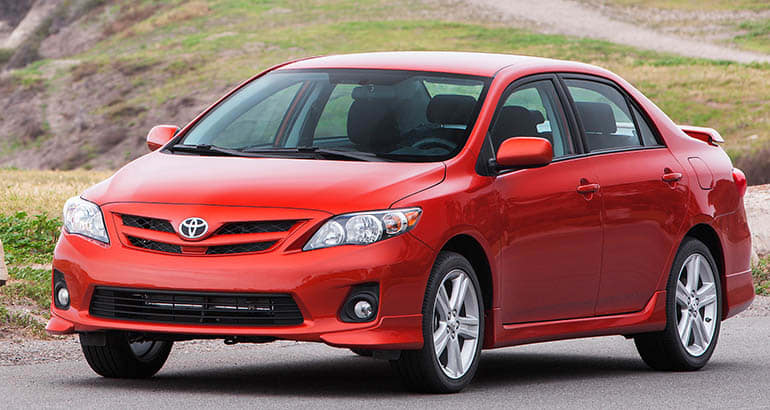Mahwah, New Jersey – Jan. 28, 2018 – Jaguar Land Rover North America is recalling more than 8,900 late-model Jaguar XF sedans as part of the broader Takata air bag recall, according to a filing with the National Highway Traffic Safety Administration. The recall includes:
- 2009 Jaguar XF sedans
- 2010 Jaguar XF sedans
- 2013 Jaguar XF sedans
As with all other vehicles in the Takata recall, the XF sedans come with faulty passenger frontal air bag assemblies that were either original equipment or replacement parts.
Specifically, 2009 model-year XFs sold in what has been designated Zone C are part of the recall, and were produced from Dec. 4, 2007, to Feb. 11, 2009. The 2010 XFs – all produced between Sept. 24, 2008, and March 2, 2010 – were sold or registered in Zone B. The model-year 2013 XFs sold or registered in Zone A were produced from May 15, 2012, to Sept. 13, 2013.
Zone A includes a number of southern states, Hawaii, Texas and outlying territories like Puerto Rico and Guam. Zone B includes several populous states in the Midwest and Appalachia, as well as Washington, D.C.
Finally, Zone C includes all of New England, New York, a number of states in the Upper Midwest and Mountain region, as well as the Pacific Northwest.
All vehicles in the recall are believed to carry this defect.
Recall sumamry
If exposed over a long enough period of time to extreme temperature changes or high humidity, the propellant that ejects the air bag in the event of a crash could cause the bag to degrade.
Consequently, if a crash leads to deployment of that air bag, the inflator may rupture, resulting in metal fragments being ejected from the air bag compartment at high speeds. This can increase the risk of operators and passengers in the vehicle being struck with the fragments, which can lead to injury or death.
In mid-May 2016, Jaguar Land Rover learned of the broader issue with the frontal passenger air bags from Takata, and opened its own investigation into the problem just a few days later. The automaker’s Product Safety and Compliance Committee quickly determined which of its produced vehicles had been outfitted with the faulty air bags, but that there had not been any incidents related to the issue, and no injuries have been reported to date. Nonetheless, it determined to conduct a recall of the vehicles to remediate the problem.
Since then, the company has worked with the NHTSA as part of the government organization’s coordinated remedy program. This recall as part of the program’s Phase 3.
The repair
Jaguar has already begun the process of notifying dealers about the recall, starting on Jan. 11, 2018. It likewise expects to begin notifying owners of the affected vehicles on or around Feb. 28, 2018.
Is your vehicle part of the recall?
Over 8,900 vehicles were originally part of this recall. As of April 9, 2021, – the last date for which information was available – 7,358 airbags had been replaced. To see if your car still needs to be repaired, use MotorSafety’s free lookup tool.

